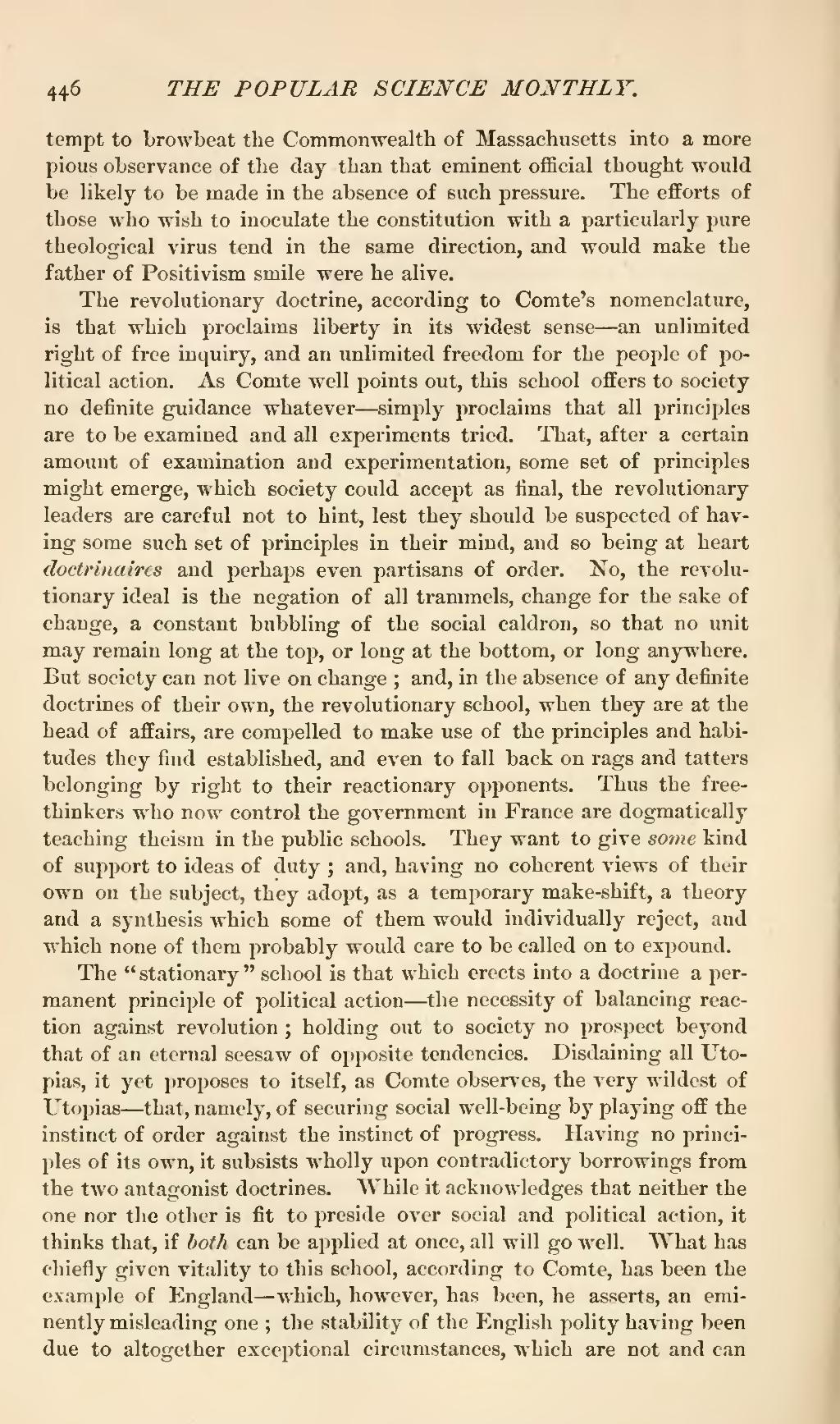tempt to browbeat the Commonwealth of Massachusetts into a more pious observance of the day than that eminent official thought would be likely to be made in the absence of such pressure. The efforts of those who wish to inoculate the constitution with a particularly pure theological virus tend in the same direction, and would make the father of Positivism smile were he alive.
The revolutionary doctrine, according to Comte's nomenclature, is that which proclaims liberty in its widest sense—an unlimited right of free inquiry, and an unlimited freedom for the people of political action. As Comte well points out, this school offers to society no definite guidance whatever—simply proclaims that all principles are to be examined and all experiments tried. That, after a certain amount of examination and experimentation, some set of principles might emerge, which society could accept as final, the revolutionary leaders are careful not to hint, lest they should be suspected of having some such set of principles in their mind, and so being at heart doctrinaires and perhaps even partisans of order. No, the revolutionary ideal is the negation of all trammels, change for the sake of change, a constant bubbling of the social caldron, so that no unit may remain long at the top, or long at the bottom, or long anywhere. But society can not live on change; and, in the absence of any definite doctrines of their own, the revolutionary school, when they are at the head of affairs, are compelled to make use of the principles and habitudes they find established, and even to fall back on rags and tatters belonging by right to their reactionary opponents. Thus the freethinkers who now control the government in France are dogmatically teaching theism in the public schools. They want to give some kind of support to ideas of duty; and, having no coherent views of their own on the subject, they adopt, as a temporary make-shift, a theory and a synthesis which some of them would individually reject, and which none of them probably would care to be called on to expound.
The "stationary" school is that which erects into a doctrine a permanent principle of political action—the necessity of balancing reaction against revolution; holding out to society no prospect beyond that of an eternal seesaw of opposite tendencies. Disdaining all Utopias, it yet proposes to itself, as Comte observes, the very wildest of Utopias—that, namely, of securing social well-being by playing off the instinct of order against the instinct of progress. Having no principles of its own, it subsists wholly upon contradictory borrowings from the two antagonist doctrines. While it acknowledges that neither the one nor the other is fit to preside over social and political action, it thinks that, if both can be applied at once, all will go well. What has chiefly given vitality to this school, according to Comte, has been the example of England—which, however, has been, he asserts, an eminently misleading one; the stability of the English polity having been due to altogether exceptional circumstances, which are not and can

